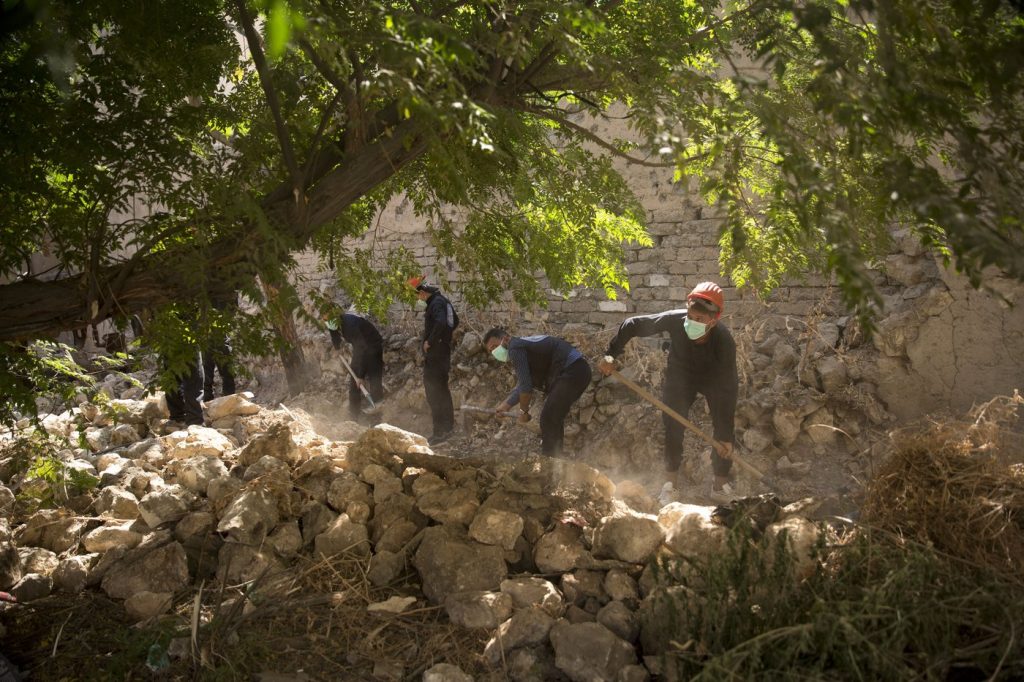DAMASCUS, Syria (AP) - The remains of 30 individuals, believed to have been killed by the militant Islamic State (IS) group, have been uncovered in a remote town in Syria. This search was led by Qatari teams in collaboration with the Federal Bureau of Investigation (FBI), as stated in a Monday announcement from Qatar. The operation took place in Dabiq, located near Syria's northern border with Turkey.
According to the Qatari internal security forces, this search was initiated at the request of the FBI. Currently, DNA tests are being conducted to ascertain the identities of those found. However, the Qatari agency did not specify who precisely the American security agency is attempting to identify.
Over the years, numerous foreigners, including aid workers and journalists, fell victim to IS militants, who held significant portions of Syria and Iraq for nearly five years and proclaimed a self-styled caliphate. The militant organization lost a majority of its territory by the end of 2017 and was declared defeated in 2019.
In the aftermath of this defeat, multiple gravesites, including mass graves, have been discovered throughout northern Syria, containing the remains of individuals who had been abducted by IS over the years. Notable victims include American journalists James Foley and Steven Sotloff, as well as humanitarian workers Kayla Mueller and Peter Kassig. British journalist John Cantlie was abducted alongside Foley in 2012 and was last seen alive in a propaganda video released by IS in 2016.
Additionally, mass graves have also been found in regions previously controlled by Syrian President Bashar Assad. The upheaval against Assad’s regime, culminating in a quick insurgency in December of last year, concluded his family's long-standing rule of over half a century. For many years, the Assad regime used its notorious security and intelligence agencies to suppress dissent, leaving numerous dissidents missing.
The United Nations reported in 2021 that more than 130,000 Syrians were forcibly disappeared during the uprising that began in 2011 and escalated into a devastating 13-year civil war. This grim statistic underscores the ongoing human rights crisis in Syria, as families continue to seek closure for their missing loved ones.
In summary, the discovery of the remains of these individuals in Dabiq highlights the tragic legacy of violence wrought by the Islamic State group and the broader conflict in Syria. The continued efforts to identify the deceased victims reflect a commitment to justice and accountability in a region deeply scarred by years of turmoil.











